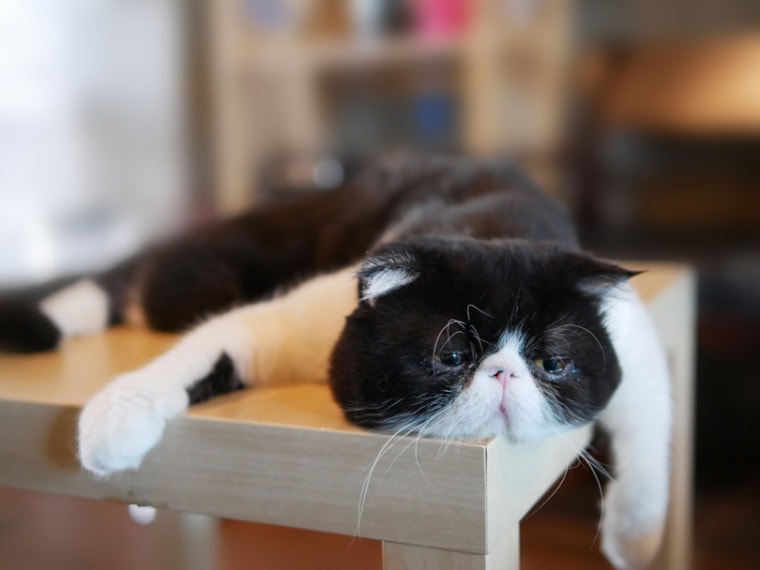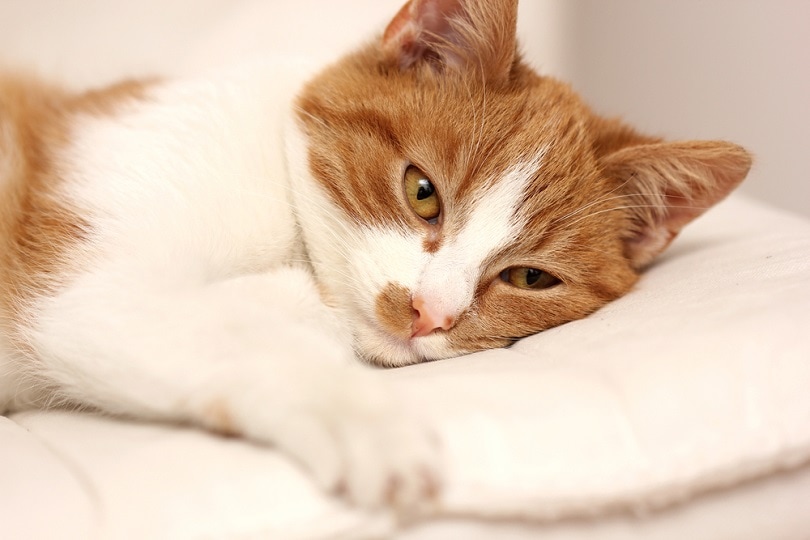
Cats have the reputation of being aloof, but anyone with a cat in their life knows that isn’t true for all felines. Cats are affectionate, active, fun, and sassy. They are complex and emotional, so it shouldn’t be surprising that cats can also feel sadness.
Owners can miss when a cat is sad or depressed because the signs are easy to interpret. A quiet and calm cat, for example, can be a sad cat. There are various reasons your cat might be feeling blue, but some are more obvious than others. Read on to learn the signs of sadness and how to cheer up your feline friend.
The 3 Possible Reasons Your Cat Can Feel Sad
Sometimes the reason your cat is feeling sad is apparent, and sometimes it might be something you haven’t noticed. Have you been spending less time together? Cats are not fond of changes in their environments or routines. So, if you’ve been busier than usual lately, plan some time to hang out together.
1. Loss of a Loved One
Losing a family member (human or pet) can be difficult for everyone, whether that loss is through death or someone leaving home. Your cat will grieve the loss, just like you will, but it is a temporary state. With some time, your cat will return to normal.

2. Injury
Your cat may sustain an injury when walking, playing, or just being a cat. The injury can limit your cat’s ability to do everything it once enjoyed. Pain from the injury may also affect your cat’s mood. Old injuries can cause residual pain or discomfort and may require chronic pain relief. Make sure you follow your vet’s instructions regarding pain relief, and hopefully, your cat will be back to its usual self in no time!
3. Illness
Your cat may feel nauseated and not want to eat. Some illnesses and diseases can affect their moods, such as fatty liver disease, upper respiratory diseases, dental disease, ringworm, and cancer. If you suspect your cat is depressed because they’re unwell, contact your vet as soon as possible.

Signs of a Sad Cat
If you notice any of these signs, it could be an indication your cat is depressed:
You know your cat best, and you’re the best judge if its behavior seems different. For example, a change in vocal cues can also signify something is amiss. Is your cat meowing more or less than usual? Unhappy noises are usually low-pitched and mournful yowls, and purring does not always indicate contentment. Your unhappy kitty may purr to comfort itself. A quiet cat may become louder and more vocal, but a noisy cat could become quiet.
How To Make Your Cat Happy
The ways you cure your cat of sadness will depend on why they’re sad. If they’re mourning a loss, extra love and attention can help. If your cat is sad because they miss you, playtime and quality time will do the trick.
So, when do you call the vet? You should contact your vet if you notice signs of stress, illness, or chronic depression.
Conclusion
While cats feel sadness, the reasons behind the feeling can be varied. If you notice any changes in behavior that can’t be connected to a sudden change in routine, like a death in the family or a change to your schedule, it could indicate something more serious. Be sure to contact your vet if you’re worried and follow the treatment instructions carefully.
Featured Image Credit: 9lnw, Shutterstock







